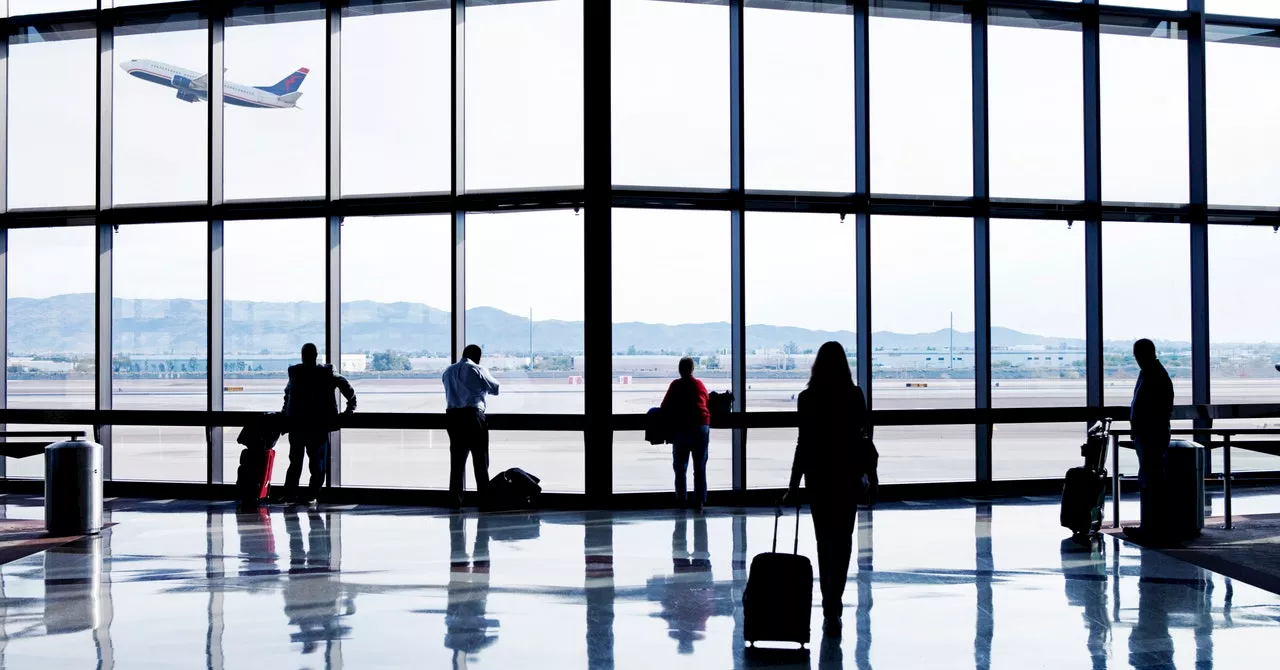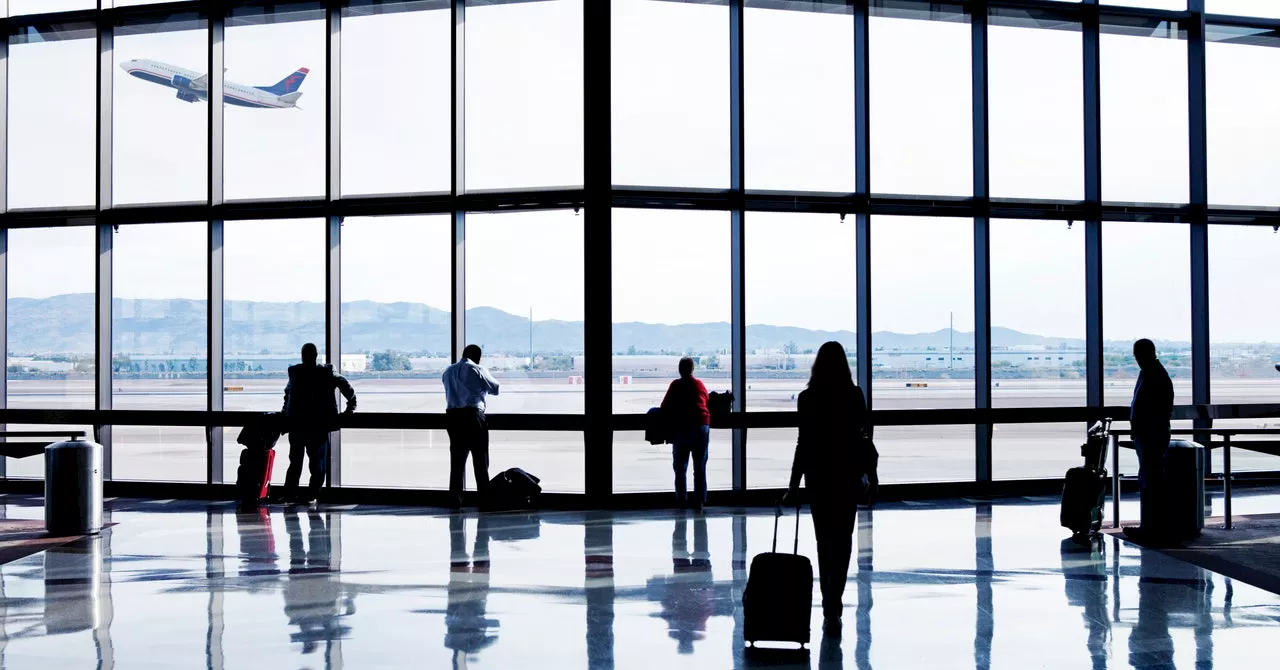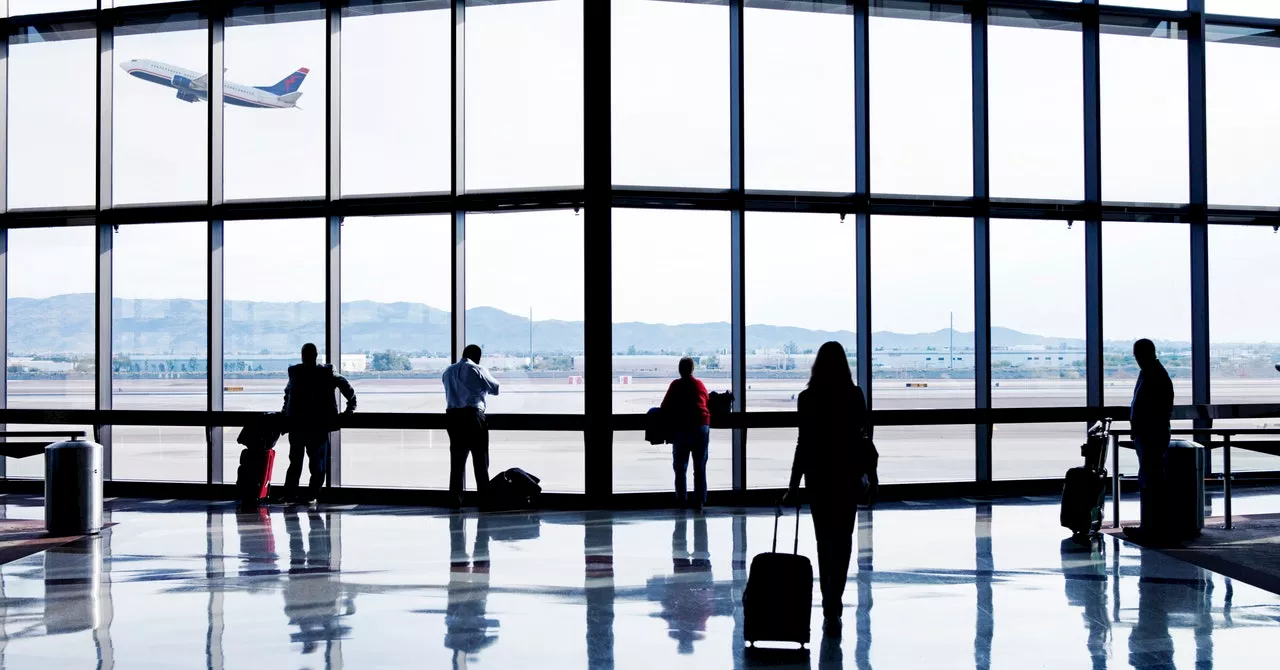This article explores the psychological factors that contribute to unusual and sometimes antisocial behavior at airports. From the impact of pre-trip excitement and anxiety to the disorientation caused by fluid time and place, the article delves into how the airport environment can influence our behavior. It also considers the liberating effects of leaving behind our normal routines and identities.
Many of us have witnessed unusual and even antisocial behavior at an airport or on a flight. These may range from benign acts such as sleeping on the floor or doing yoga in front of the flight information display system to serious incidents like early morning drunken arguments or even trying to open the airplane doors mid-flight. These more sinister problems appear to have worsened over recent years, with increasing air rage incidents and flight diversions.
Such incidents have led to calls to reduce or even ban the sale of alcohol at airports and on planes. RyanAir, for example, has called for a two-drink limit at airport bars to stop drunken incidents on planes. But what is it about airports that make us behave differently? Let’s take a look at the psychology. Many vacationers feel that the adventure begins at the airport, putting them in a different frame of mind than normal. They are eager to begin their one or two weeks’ of relaxed hedonism with a flourish. Others, however, are anxious about flying, which may make them act out of character or take refuge in alcohol. The noise and crowds of airports doesn’t help either. As the field of environmental psychology has demonstrated, human beings are very sensitive to our immediate surroundings and can easily become “overloaded” by stressors such as crowds and noise. Stress and anxiety produce irritability, both on a temporary and ongoing basis. People who are generally anxious are more prone to anger. And a temporary anxious mood often triggers angry outbursts. In my view, we also need to look at the airport from a psychogeographic perspective. Psychogeography studies the effect of places on people’s emotions and behavior, particularly urban environments. In Celtic cultures, there is a concept of special “thin places”—often sacred groves or forests—where the veil between the material and spiritual world is thin. In thin places, we are between two realms, neither fully in one place nor another. In the modern technological world, airports can also be seen as “thin places.” They are liminal zones where boundaries fade. On a literal level, national borders dissolve. Once we pass through security, we enter a no-man’s-land, between countries. The concept of place becomes hazy. In a similar way, time becomes a hazy concept at airports. About to step on a plane, we are in a liminal space between two time zones, about to leap forward in time, or even head back into the past. Some flights across the US—such as Atlanta to Alabama—land earlier than departure time, as they cross time zones. Being able to manage our time gives us a sense of control over our lives. Losing this may be another source of anxiety. In another sense, airports are a zone of absence, where the present moment is unwelcome. Everyone’s attention turns toward the future, to their flights and the adventures ahead of them when they arrive at their destination. This intense future focus often brings frustration, especially if flights are delayed. Personal boundaries also become fluid. As well as antisocial behavior, airports may play host to pro-social behavior, where strangers share their travel and holiday plans, speaking with unusual intimacy. In no-man’s-land, normal social inhibitions don’t apply. And alcohol can further lubricate this social cohesion. Due to the haziness of time and place, airports create a sense of disorientation. We define ourselves in terms of time and place. We know who we are in relation to our daily routines and our familiar environments. We also define ourselves in terms of nationality. Without such markers, we may feel adrift. Whether caused by psychological or environmental factors, and even if only temporary, disorientation can have detrimental effects. Liberating Effects On the plus side, all of this may have a liberating effect for some of us. As I point out in my book Time Expansion Experiences, we normally view time as an enemy that steals the moments of our lives and oppresses us with deadlines. So to step outside time sometimes feels like being let out of prison. The same applies to identity. A sense of identity is important to our psychological health, but it can become constricting. Like actors who are stuck playing the same character in a soap opera week after week, we enjoy the security of our roles but long to test and stretch ourselves with new challenges. So to step outside our normal routines and environments feels invigorating. Ideally, the freedom that begins at the airport continues throughout our foreign adventures. Ultimately, whether we feel anxious or liberated, we may end up acting out of character. In line with the theories of psychologist Sigmund Freud, this could be interpreted as a shift from our normal civilized ego to the primitive, instinctive part of the psyche, which Freud called the id. According to Freud, the id is the site of our desires and drives, our emotion and aggression, and it demands instant gratificatio
AIRPORTS BEHAVIOR PSYCHOLOGY ANXIETY LIBERATION TIME PLACE IDENTITY ENVIRONMENT
United States Latest News, United States Headlines
Similar News:You can also read news stories similar to this one that we have collected from other news sources.
 The Psychology of Airports: Why We Act DifferentlyThis article explores the reasons behind the unusual and sometimes antisocial behavior witnessed at airports and on flights. It delves into psychological factors like vacation anticipation, anxiety related to flying, and the impact of noise and crowds. The concept of airports as 'thin places' where boundaries blur, influencing time perception and personal identity, is also examined. The article concludes by discussing the liberating effects airports can have, allowing for a temporary escape from societal norms and routines.
The Psychology of Airports: Why We Act DifferentlyThis article explores the reasons behind the unusual and sometimes antisocial behavior witnessed at airports and on flights. It delves into psychological factors like vacation anticipation, anxiety related to flying, and the impact of noise and crowds. The concept of airports as 'thin places' where boundaries blur, influencing time perception and personal identity, is also examined. The article concludes by discussing the liberating effects airports can have, allowing for a temporary escape from societal norms and routines.
Read more »
 The Psychology of Provocation: Why We Fall for Bait OnlineThis article explores the psychological mechanisms behind provocation, examining how defense mechanisms like projection and displacement fuel arguments. It delves into the neuroscience of emotional reactivity and the role of stress in escalating conflict. The piece also offers strategies for navigating online provocations, emphasizing the importance of pausing before reacting and engaging strategically.
The Psychology of Provocation: Why We Fall for Bait OnlineThis article explores the psychological mechanisms behind provocation, examining how defense mechanisms like projection and displacement fuel arguments. It delves into the neuroscience of emotional reactivity and the role of stress in escalating conflict. The piece also offers strategies for navigating online provocations, emphasizing the importance of pausing before reacting and engaging strategically.
Read more »
 Why People Act So Weirdly at AirportsTime and boundaries dissolve in these spaces while people become charged with stress, anxiety, and excitement. Throw in a drink or two, and it’s no wonder people aren’t themselves.
Why People Act So Weirdly at AirportsTime and boundaries dissolve in these spaces while people become charged with stress, anxiety, and excitement. Throw in a drink or two, and it’s no wonder people aren’t themselves.
Read more »
 Wolf Man: Why Ryan Gosling Is a Producer (And Why He Didn’t Star)Comic Book Movies, News, & Digital Comic Books
Wolf Man: Why Ryan Gosling Is a Producer (And Why He Didn’t Star)Comic Book Movies, News, & Digital Comic Books
Read more »
 Miss Manners: Why must the bride’s family explain why people weren’t invited?Plus: Should I not wear black if the memorial service is a “celebration”?
Miss Manners: Why must the bride’s family explain why people weren’t invited?Plus: Should I not wear black if the memorial service is a “celebration”?
Read more »
 Why I left the Democratic Party after voting for Kamala Harris — and why others will followToday's Video Headlines: 1/29/25
Why I left the Democratic Party after voting for Kamala Harris — and why others will followToday's Video Headlines: 1/29/25
Read more »
